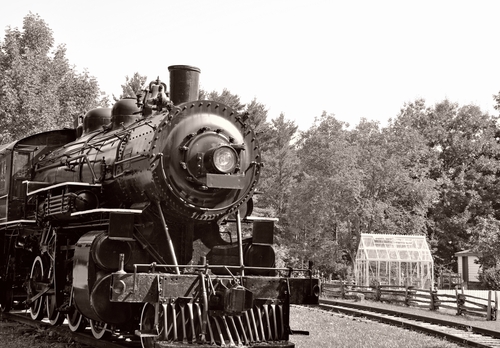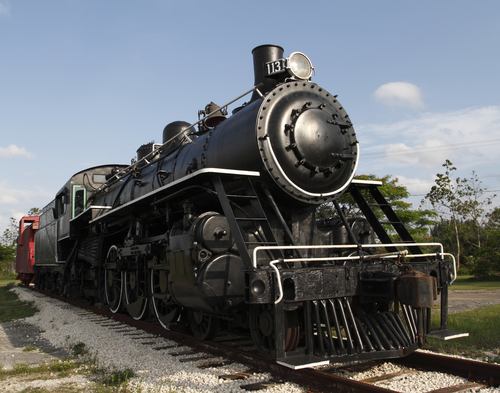Scanning is a way of reading a text quickly to find specific information. Instead of reading the whole text word for word, you focus on the particular words, phrases or numbers you need.
The following text is a newspaper report from 2004, describing the end of the Travelling Post Office (TPO) service, the trains that used to run through the night taking mail across the country.
In this activity, you will be asked to scan the passage to find the answers to a range of questions. You can look back at the passage as often as you want to by clicking on the red Help button.
Night Train That Turned Post into Poetry Makes its Final Delivery
By Michael McCarthy, Environment Editor of The Independent, Published: 10 January 2004

It was one of the world's great railway journeys, but you could not book a seat on it. It inspired two of Britain's greatest 20th-century poets, and Britain's most infamous bunch of 20th-century villains. It rushed through the darkness, utterly reliable, while the rest of us slept. But last night it ran for the last time.
The "Night Mail", the train that W H Auden and T S Eliot made famous in rhyme, and the 1963 Great Train Robbers made famous in crime, is being replaced by a much less romantic means of getting letters from one end of the country to the other: lorries.
The trains, officially known as travelling post offices (TPOs), had specially-constructed carriages that allowed post to be sorted on the way. They first ran in 1838, but they have gradually been replaced in recent years, and now the last 10 trains are being axed in a cost-cutting plan to save Royal Mail £10m a year. A Royal Mail spokesman said yesterday, "Travelling sorting offices were a Victorian solution to a Victorian problem ..., before the era of motorways and air travel. Like mail coaches before them, TPOs are now part of the Royal Mail's history."
The company said it had invested heavily in high-tech, automated equipment which sorts 30,000 letters an hour, compared with just 3,000 on the trains. Bulk mail will still be transported by rail, but that is also being phased out in the next few months, despite opposition from unions and environmentalists.
But the reaction is more one of sadness from the postal staff involved. Steve Griffiths, the TPO unit manager, said the end of the service would come as a "big shock" to many of the hundreds of people who had dedicated the best part of their working lives to the trains. He said the unit had the highest percentage of people with more than 20 years' service in the Royal Mail and that, for many, the job had become a way of life. He said, "It is much more than a job; it is a lifestyle. From Monday lunchtime until Saturday morning, their whole lives are organised for them, so, for a lot of them, it is going to be a big shock. Although there is a great deal of emotional and sentimental attachment to the TPOs, in the 21st century they are simply not necessary." In 1936, the GPO film unit made the classic documentary Night Mail, showing the overnight run of the postal special from London to Scotland. Benjamin Britten wrote the music for the soundtrack, and Auden produced one of his best-loved poems, putting the rhythm of the rails into his rhyming couplets:
'This is the Night Mail crossing the border,
Bringing the cheque and the postal order,
Letters for the rich, letters for the poor,
The shop at the corner and the girl next door.. '
But the Night Mail became the source of mass headlines rather than verse in 1963. At 3am on 8 August, at Bridego Bridge in Buckinghamshire, Ronnie Biggs and the rest of the Great Train Robbers audaciously halted the train, the U.P. special from Glasgow, and made off with £2,631,784 in cash.
The 10 remaining special trains will not all disappear. At least one will go to Didcot Railway Centre in Oxfordshire. Bill Barnet, 62, of Greenhithe, Kent said he had enjoyed every one of his 35 years working on the trains. He said, " I think it is sad, but I know it's economics."

Now let's have a go at some questions.

